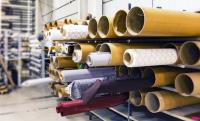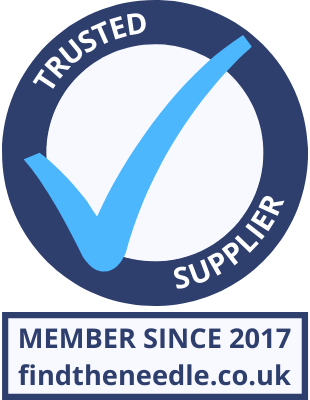 Add My Company
Add My Company
Sign In

It is possible and implementable – whether it is about fashion garments, bridal dresses, or socks and sweatshirts. Let’s dig into practicing sustainability in the textile industry.
Sustainability is now a part of the textile industry. It’s about more than using organic cotton and improving working conditions. Water, energy, and chemical consumption pose challenges for textile companies at all stages of the value chain.
1. Sustainability begins with the design process
The materials used for a textile not only determine the value chain and supply chain structure but also the recycling possibilities. The more different materials and chemicals are used, the more difficult recycling becomes later, and the higher the consumption of resources. Applying textiles as solar collectors, pollutant filters, or insulation material provides great innovation potential.
2. Recyclable upholstery materials
Companies are already paying attention to recycling, environment, health, and energy in the design of its products. The materials can be separated by type and are 100 percent recyclable. After their useful life, products like upholstery fabrics return to the cycle of production, consumption, and renewal.
3. The slow fashion trend
Things are still different in the fashion industry. The design process has changed dramatically in recent years due to the new business models of the major fashion chains. Online trading and the permanent recycling of the collections create a loop that is hard to break. A new collection (partial) must be placed on the market at least quarterly, if not monthly, or weekly. There is hardly any time and money left for design development, research, and innovation.
Nonetheless, counter-trends to this “fast fashion” can already be seen-not least because of the growing market awareness. Green Fashion, Sustainable Fashion, Fair Trade Fashion labels, long-lived quality fabrics, sustainable-textiles, and recyclable products are becoming more and more relevant in the Slow Fashion industry.
4. From catch net to new suit
The fibers used as raw materials to produce textiles pollute the environment during cultivation and are produced with high resource utilization. In cotton cultivation, for example, large quantities of pesticides and water are used, and man-made fibers such as polyester are produced from crude oil using a high amount of energy and chemicals.
Alternatives to conventional cotton are organic cotton, organic wool, native natural fibers such as flax or hemp, and cellulose-based fibers. For example, in the case of synthetic fibers, milk or other animal proteins may be processed in place of crude oil. However, these innovations are still at the beginning of their development, are cost-intensive, and are in the per-mile range of total consumption.
The recycling of raw materials is also an alternative form of fiber production. The Italian textile mills are a good example of the sustainable extraction of raw materials through recycling. With the ecological innovations, Covered Bliss is committed to a cleaner environment not only on land but also in the oceans. The companies gather floating ghost nets at sea and manufacture recycled nylon yarn. These are used for the production of functional swimwear fabrics, which will again close the ecological circle.
The pioneers for recycled polyester fibers also use plastic bottles as raw material, which are crushed into flakes and then transformed into pellets, melted and spun into yarn. The recycled fiber, however, is not only used in the manufacture of clothing but also the manufacture of outdoor products such as camping hammocks, water bottles, or inflatable outdoor loungers.
5. Last touch-ups can be sustainable and cost-effective
The textile is dyed, crease-free, waterproof, or fireproof during final finishing. Around 15,000 chemical substances are available in all of Europe for textile finishing. In addition, the process consumes a lot of water. Innovations, therefore, aim to reduce the quantities of chemically contaminated wastewater while at the same time reducing the demand for freshwater.
A major problem for the textile industry is the scarcity of ecological chemicals available on the market for some textile finishing functions. The development of ecologically and functionally acceptable alternatives is therefore the focus of innovations. Environmentally friendly methods and the use of plant dyes are topics that are taken up in various projects.
An economic and sustainable innovation comes from Swedish companies. Unlike the previous practice of spinning polyester fibers and subsequently dyeing them with many environmental risks, the fibers are already dyed during the spinning process. The dyeing of fabrics and yarns becomes old, which saves resources and costs.
The concept to merge polyester with the masterbatch without water; the result of this dye-free masterbatch dyeing process is a dyed chip, which is then pressed out into yarn. The advantage of this innovation is that the in-process water consumption can be reduced by 50 percent and the fabrics produced have a higher colorfastness. In addition, the end product is recyclable.
Verdict: The textile sector is in upheaval
Sustainability has become a big trend in the textile industry in recent years. Consumers are better informed and increasingly expect environmentally and socially acceptable products in the textile industry, and thus sustainable solutions. Manufacturers are increasingly committed to leveraging opportunities for innovation and fostering sustainable development. Sustainability strategies range from sustainable designs and the utilization of innovative materials and processes to resource consumption and recycling optimization. The social and environmental challenges in the global value chain of textiles, however, can only be solved if politics, business, and civil society pull together.
—
Explore Kingly’s award-winning sustainability solutions – organic cotton socks, upcycled socks and compostable bags.
Learn about our full range of bespoke clothing and beach towels here: https://wearekingly.com/
For more information on 5 Ways To Include Sustainable Practices In The Textile Industry talk to KINGLY LTD
Enquire Now
List your company on FindTheNeedle.

